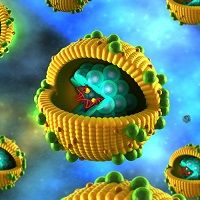Article
Chinese Study Finds Cheaper, Shorter HCV Drug Regimen
Author(s):
Most patients with non-cirrhotic livers and HCV infection may need only three weeks of direct-acting antivirals, researchers said. They reported on a small proof-of-concept study in China.

Direct-acting-antivirals work for curing hepatitis C but they are expensive and treatment can take months.
Reporting at the Liver Meeting (AASLD) in San Francisco, George K. Lau, MD, of the Humanity and Health Medical Centre in Hong Kong, China and colleagues there and at other institutions said a short regimen can work in patients who show a fast response to the drugs.
“Shorter courses could improve adherence, affordability and increase DAAs accessibility,” he wrote. The team tested their hypothesis that adding an NS3 protease inhibitor to dual NS5A-NS5B inhibitors would enhance antiviral efficacy and reduce treatment to three weeks in dindividuals with a r apid virologic response the DAAs.
They enrolled 26 n on-cirrhotic Chinese patients with chronic HCV-GT 1b infections. They randomized them to three DAA regimens.
Those who showed a rapid response got the drugs for three more weeks and those who did not took the drugs for 8 to 12 weeks longer.
The endpoint was a sustained viral response at 12 weeks (SVR12). Of 66.7% of the subjects who responded rapidly to the drugs and got their drugs for another 3 weeks, all achieved SVR12.
“The results strongly suggest that administration of potent triple regimens containin NS3, NS5A, and NS5B inhibitors leads to rapid viral response with two days in two-thirds of non-cirrhotic HCV GT1b infected patients,” the team noted.
They suggest that their proof-of-concept study merits future exploration. Using response-guided therapy has the potential to “reduce duration of therapy, cut drug costs, and significantly improve accessibility and adherence,” the researchers concluded.





